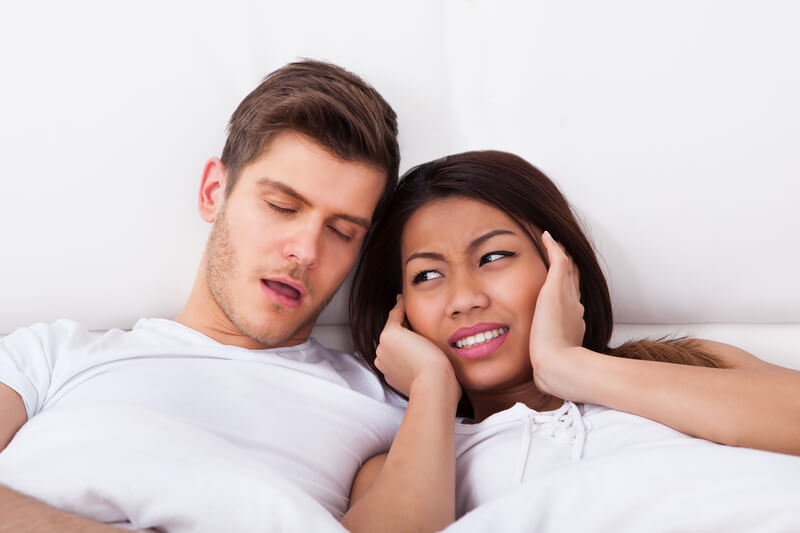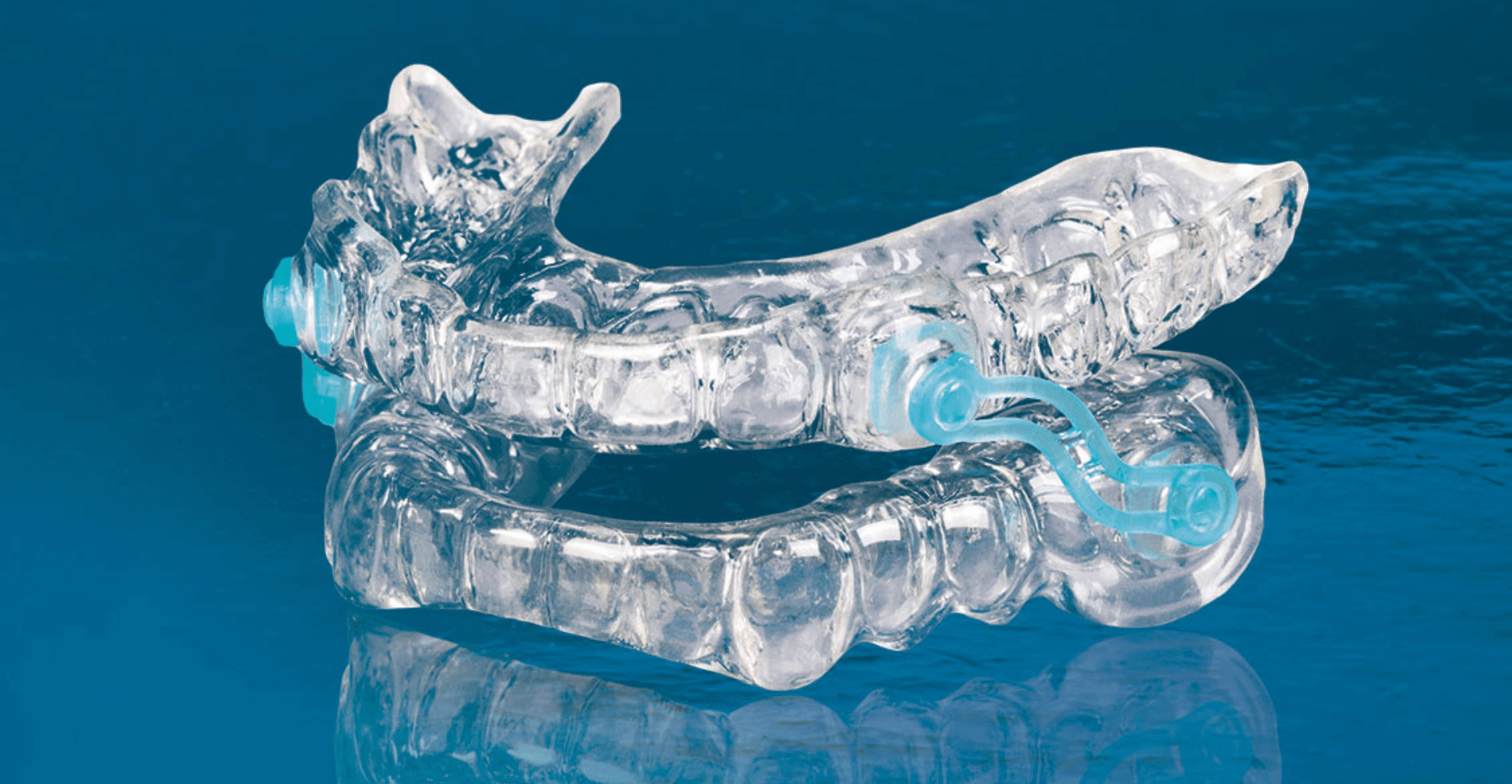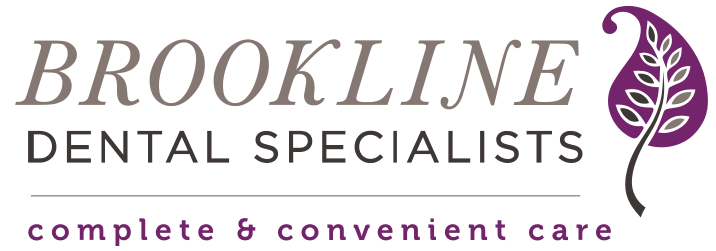Sleep Apnea and Snoring
Sleep Disturbance Treatment
Do you feel tired and unrested?
Do you grind or clench your teeth while you sleep?
Do your jaws feel sore and tight when you wake up?
Do your gums bleed easily or appear to be receding?
Over 80% of people with sleep apnea have gone undiagnosed. Have you been snoring and think you may have sleep apnea? If you answered yes to any of the questions above you might be at risk for sleep apnea.
Snoring Solutions
Snoring and sleep disturbances are often signs of obstructive sleep apnea, and your oral health could be to blame. The first sign of sleep apnea is often tooth grinding also called bruxism. The condition causes repeated breathing interruptions throughout the night. These pauses can last from a few seconds up to a few minutes and may occur 30 or more times per hour. These pauses happen because the muscles in the back of the throat are relaxed, the tongue is too large, or the jaw is too small, causing airway obstructions. A nightguard or snore guard can protect your teeth and help you sleep better. Our dentists can evaluate your teeth and your bite and plan a solution that is right for you.
The National Sleep Foundation, a U.S. nonprofit organization that promotes public understanding of sleep and sleep disorders estimates that 18 million Americans have sleep apnea. Dentists look for worn tooth surfaces, a sign that a patient grinds his or her teeth. Grinding can cause tooth wear and breakage as well as inflamed and receding gums. A spike in cavities can also be a sign of grinding because the force damages teeth, making them susceptible to cavity-causing bacteria.
Dental Nightguard
A customized nightguard that you wear while you are sleeping can improve your occlusion or the way your teeth come together and the alignment of your jaw to clear your airway and improve your breathing while you sleep.





